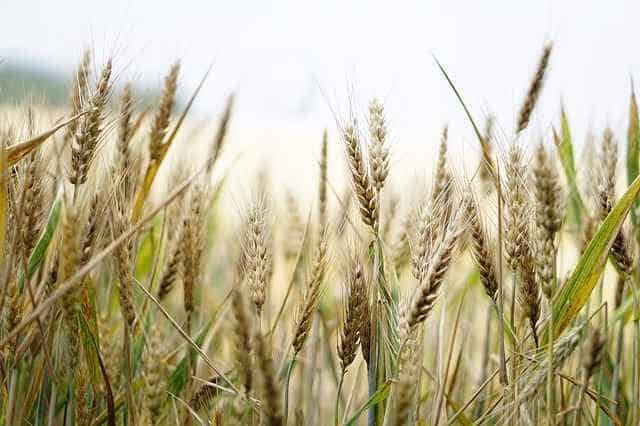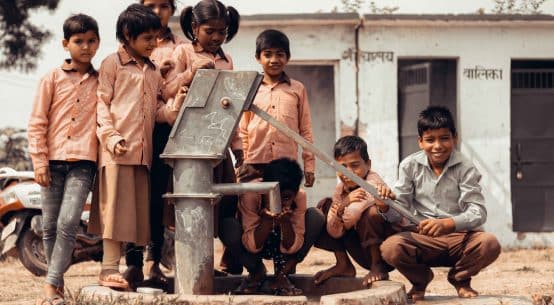Govt Schemes for Agriculture in India are initiatives by the government to improve the agricultural sector. Undoubtedly, agriculture and related sectors are India’s largest source of livelihood, especially in rural areas.
Agriculture also significantly contributes to the gross domestic product (GDP).
The welfare of farmers is always the top priority of the Indian government. To benefit farmers government has implemented various schemes (Yojans) to encourage the agricultural sector and improve the economic conditions of farmers.
These schemes benefit farmers, and they need to be aware of them to take advantage of them.
In this article, we will tell you about the schemes that the government started for farmers in India.

Table of Contents
Govt Schemes for Agriculture in India
Government of India started several agricultural schemes to improve this sector. Here are 8 schemes that aim to benefit agriculture.
Pradhan Mantri Fasal Bima Yojana (PMFBY)
Pradhan Mantri Fasal Bima Yojana provides comprehensive crop failure insurance and thus helps stabilize farmers’ income.
The program covers all food and oilseed crops and commercial/horticultural annual crops for which yield data are previously available and for which the required number of crop-cutting trials (CCEs) is carried out under the General Crop Assessment Survey (GCES). Enlisted general insurance companies manage the scheme.
The state’s government selects the Implementing Agency (IA) through a tender. This scheme is mandatory for farmers who receive loans through crop loans/KCC accounts for declared crops and volunteers for others. The Ministry of Agriculture administers the system.
You can see the details about this scheme by visiting pmfby.gov.in.
Kisan Credit Card Scheme (KCC)
Government has a vision that our farmers should be Atma Nirbhar and not rely on high-interest credit sources. So Kisan Credit Card is a step towards this. The Kisan credit card program is dedicated towards agriculture that allows farmers to borrow on time.
The Kisan credit card program was introduced in 1998 with the aim of providing farmers with a formal short-term loan.
The KCC program ensures that growers in the agriculture, fisheries, and livestock sectors are eligible for credit. Under the Kisan Credit Card scheme, farmers are granted short-term loans for the purchase of equipment and other agriculture expenses.
Many banks in the country offer KCC loans. These banks include SBI, ICICI, AXIS, HDFC, etc.
Pradhan Mantri Krishi Sinchai Yojana (PMKSY)
This scheme was launched on 01 July 2015 with the slogan Har Khet Ko Paani. Pradhan Mantri Krishi Sinchai provides a complete solution for the irrigation supply chain, water resources, distribution systems, and farm-level applications.
The vision of the government is to ensure the inclusion of Har Khet ko Pani in the water system and improve the capacity to use water. Pradhan Mantri Krishi Sinchai Yojana (PMKSY) focuses on creating reliable and protected irrigation resources by harnessing rainwater through Jal Sanchay and Jal Sinchan.
You can see further details about this scheme at pmfby.gov.in
Also Read: Ayushman Bharat Bima Yojana
Rainfed Area Development Programme (RADP)
The Rainfed Area Development program was launched as a subprogram under the Rashtriya Krishi Vikas Yojana (RKVY). The scheme was started to improve the farmer’s quality of life, particularly small and marginal ones, by offering a comprehensive package of activities to increase agricultural yields.
It also helps sustainably increase rainy areas’ agricultural productivity by adopting approaches based on an appropriate agricultural system. Its diverse and complex agricultural system minimizes the negative impact of possible crop failure due to drought, floods, or uneven distribution of precipitation.
The scheme also helps increase farmers’ incomes and livelihoods to reduce poverty in rainfed areas.
National Mission for Sustainable Agriculture (NMSA)
The National Mission for Sustainable Agriculture is among eight missions included in the National Action Plan for Climate Change (NAPCC). This is one of the govt schemes for agriculture in India.
It aims to support sustainable agriculture through measures to adapt to climate change and increase agricultural productivity, particularly in rainfed areas, with an emphasis on integrated agriculture, soil health, and the coordination of resource protection.
Schemes Under National Mission for Sustainable Agriculture (NMSA)
- Rainfed Area Development (RAD) – RFS Division implements this scheme
- Soil Health Management (SHM) – INM implements this scheme
- National Centre of Organic Farming (NCOF) – INM Division implements this scheme
- Paramparagat Krishi Vikas Yojana (PKVY) – INM Division implements the scheme
- Soil and Land Use Survey of India (SLUSI) – RFS Division implements the scheme
- Sub Mission on Agro-Forestry (SMAF) – NRM Division implements the scheme
- National Rainfed Area Authority (NRAA) – RFS Division implements this scheme
- Mission Organic Value Chain Development in North Eastern Region (MOVCDNER) – INM Division implements the scheme
Dairy Entrepreneurship Development Scheme
The Department of Animal Husbandry, Dairy, and Fisheries start the Dairy Entrepreneurship Development Scheme (DEDS), which covers activities such as the development, procurement, storage, transport, processing, and marketing of milk to create self-employment opportunities in the dairy sector.
The scheme provides reserve capital support for banking projects. The National Bank implements the plan for Agriculture and Rural Development (NABARD). The main objectives of the scheme are:
- To encourage the creation of modern dairy farms to produce pure milk and promote the breeding of heifer calves, thus maintaining good breeding.
- Introduce structural changes in the unorganized sector so the initial milk processing can be carried out at the village level. Upgrading standard and conventional technology for commercial milk processing.
- Creating self-employment and providing infrastructure, especially for the unorganized sector.
Livestock Insurance Scheme
The livestock insurance system is one of the schemes for agriculture in India. It is a centrally funded scheme that was started on a pilot basis in 2005-2006 and 2006-2007 in the context of the 10th Five-Year Plan and the 11th Five-Year Plan 2007-2008 in 100 selected districts.
The program was regularly implemented in 100 newly selected districts across the country from 2008 to 2009.
This plan provides insurance for cross-breeding and high-yielding cattle and buffaloes at the highest price on the current market. Premiums are supported up to 50%. The central government covers all subsidy costs.
Subsidy benefit is provided to a maximum of 2 animals per beneficiary during a maximum policy period.
This scheme is implemented in all states through the relevant Livestock Development Board except for Goa.
It is proposed to extend this system to the 100 old districts included in the pilot project and to other animal species, including native cattle, yaks, and mithun (state animal of Nagaland and Arunachal Pradesh).
Pashu Kisan Credit Card Scheme
The government of India started the Pasha Kisan’s credit card scheme for livestock farmers. The scheme’s purpose is to grow and develop the livestock industry in India. Haryana was the first state in the country to give farmers a Pasha Kisan credit card.
According to this scheme, a farmer can get a lot to purchase cows, buffaloes, goats, etc. You can apply for a Pasha Kisan credit card by going to the nearest bank.
For the benefit of animal husbandry farmers, the Indian government has started the Pashu Kisan credit card scheme. This card will increase livestock trade in the country and help farmers earn more.
Conclusion
India is an agricultural country, and most people are earning their livelihood through agriculture, so it is an important industry. The government of India paid special attention to the agriculture sector and started several schemes for the country’s farmers.
These government schemes for farmers in India are launched to benefit the farmers. The above schemes are launched for different purposes for the farmers so that they can benefit from them, improve their economic condition, and help develop the country’s economy.


